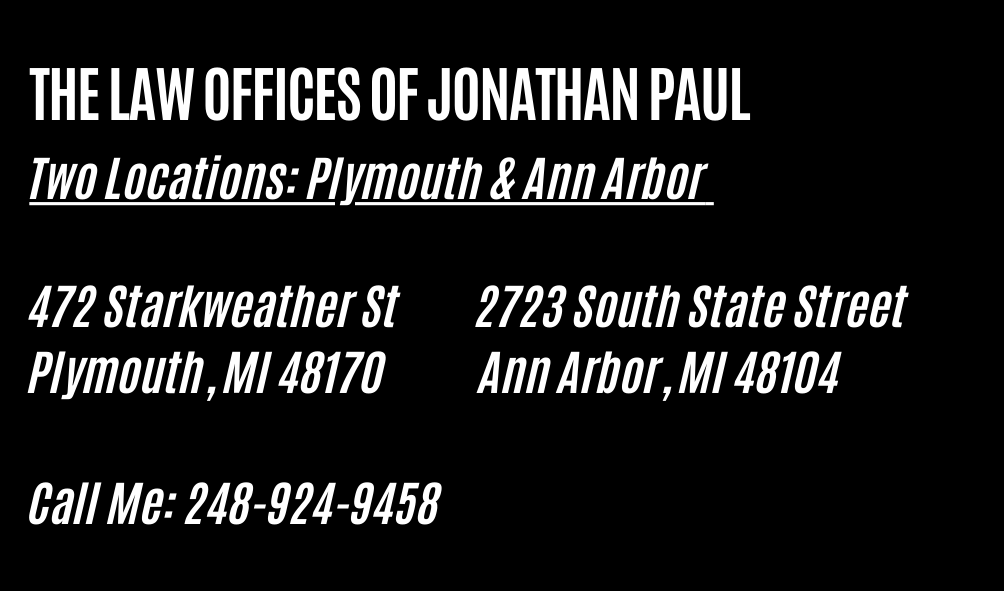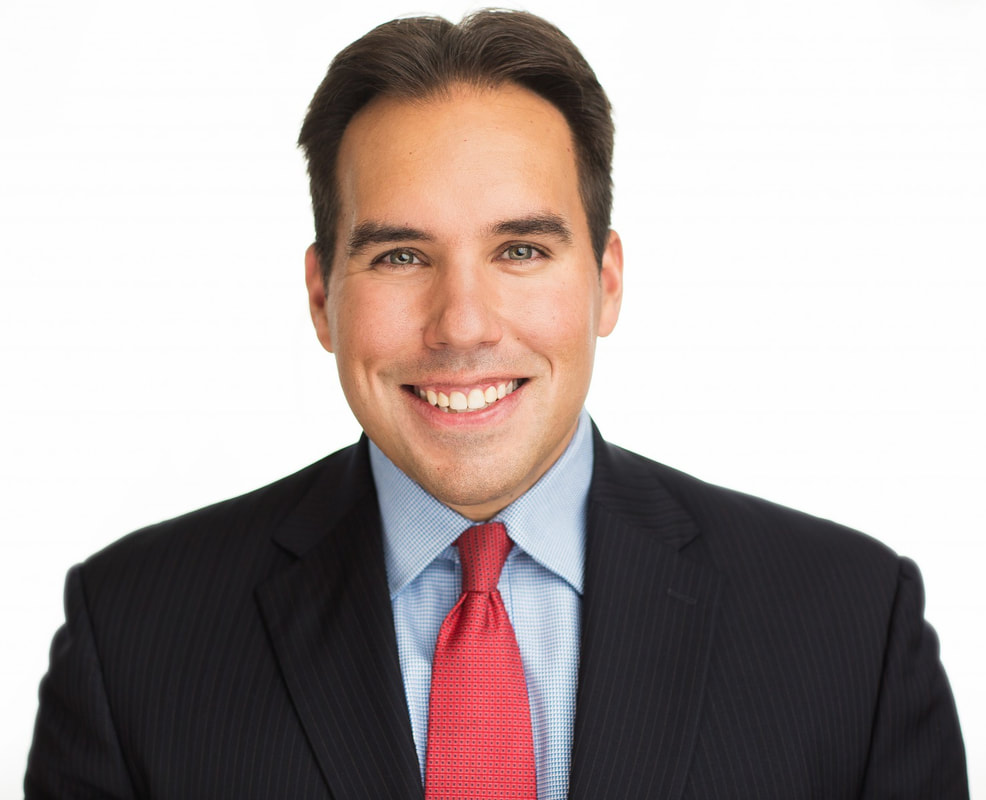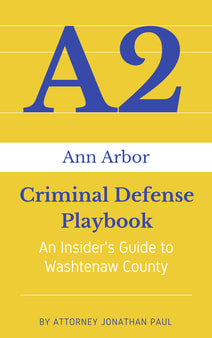As a former prosecutor in both New York City and Michigan, I worked on many fraudulent identification cases. I use that term rather than FAKE ID, because it's a more serious crime than many people want to believe. Most people think of this offense as trying to enter a bar or buy some beer at the corner store, and the bouncer or store owner takes the ID and tells you to get lost. If it were that simple, there would be no criminal charges.
Although 99.9 percent of the FAKE ID cases I handle do involve an underage person "just getting caught", the charge itself does not read the same way on paper. I say this because the perception of the case far outweighs the reality of the situation. Prosecutors are pretty reasonable on FAKE ID cases in Michigan if approached in the correct manner, but they also don't understand how the case looks from an outsider.
If you're charged with this offense, here is what the offense actually says under MCL 28.295 It states, in part, "that no one shall intentionally reproduce, alter, counterfeit, forge, or duplicate an official state identification card or use an official state identification card that has been reproduced, altered, counterfeited, forged or duplicated."
You do not want a potential employer, grad school or anyone else seeing this on your record. Forging? Counterfeit? Altering government documents? No no no. Going to medical school, law school, want to be a CPA, a teacher, a nurse? Would you hire or admit someone into those fields who alters government documents?
If the crime read "possessed an identification card to enter a bar or buy alcohol, because the defendant is a good student in college, but still can't legally buy it" then OK - taking some liberties there, but the charge doesn't say anything like that, because the FAKE ID for alcohol is only a small portion of this criminal offense. I don't allow my clients or sometimes their parents to ignore the serious consequences of this charge; it is a lot more than having a "FAKE ID" at the bar.
As a criminal defense lawyer I take an aggressive and immediate approach to this charge. This does not mean we aggressively "fight the case", because if you were caught with the ID trying to get the bar then you were caught with it - what's your defense? There's a misconception when charged with a crime that you should get out your sword and do battle; what if you're really guilty, why would you pull out your sword to be slaughtered? Many lawyers try to sell this approach to clients, but it's foolish, and puts the client in a terrible position with the prosecutor, and potentially the charge.
There's many paths to take for a case like this, and I have found the path of building consensus and peacemaking to the best approach, especially on a charge where the prosecutor is going to be open to resolution. If you storm the prosecutor's castle on day one with your sword, those options aren't going to be there.
The first thing we do is acknowledge the perception of our audience. If charged with a FAKE ID type case, well you're also going to be "charged" in the prosecutor's mind with underage drinking - officially or unofficially - why else would you have the ID on your person?
We treat the case in two parts. We address the alcohol issue, and put items into place to gain further insight and awareness about choices with alcohol. No, it is not a crime anymore in Michigan to underage drink, but that does not matter to a prosecutor, we need to show we're willing to learn from the incident. We also need to work on practicing heightened awareness and properly weighing the consequences of our actions, especially when it's so easy to try to get away with something. Take a step back, reflect and acknowledge the poor choice.
We may do things like alcohol classes, attend an AA meeting with reflection essay, and a day or two of community service. Better to put the case on a pedestal and treat it like a serious matter that we need to address rather than blowing it of as if it's not a big deal. I put my clients through the paces to provide enough currency to resolve these cases with the prosecutor.
If the client shows "they give a crap" and respect the charge and the incident then a prosecutor and judge will be more open to keeping this serious charge off of their record. This means more than saying "I'm sorry" or "I will never do this again" - that's a ton of hot and useless air being wasted in court. Real actions and credibility are all that matters to a prosecutor.
Take it lightly, and show you haven't learned a single thing then maybe you should be stuck with this on you record; I strongly believe in the opposite - take it serious and learn from it even if it takes more work.
Although 99.9 percent of the FAKE ID cases I handle do involve an underage person "just getting caught", the charge itself does not read the same way on paper. I say this because the perception of the case far outweighs the reality of the situation. Prosecutors are pretty reasonable on FAKE ID cases in Michigan if approached in the correct manner, but they also don't understand how the case looks from an outsider.
If you're charged with this offense, here is what the offense actually says under MCL 28.295 It states, in part, "that no one shall intentionally reproduce, alter, counterfeit, forge, or duplicate an official state identification card or use an official state identification card that has been reproduced, altered, counterfeited, forged or duplicated."
You do not want a potential employer, grad school or anyone else seeing this on your record. Forging? Counterfeit? Altering government documents? No no no. Going to medical school, law school, want to be a CPA, a teacher, a nurse? Would you hire or admit someone into those fields who alters government documents?
If the crime read "possessed an identification card to enter a bar or buy alcohol, because the defendant is a good student in college, but still can't legally buy it" then OK - taking some liberties there, but the charge doesn't say anything like that, because the FAKE ID for alcohol is only a small portion of this criminal offense. I don't allow my clients or sometimes their parents to ignore the serious consequences of this charge; it is a lot more than having a "FAKE ID" at the bar.
As a criminal defense lawyer I take an aggressive and immediate approach to this charge. This does not mean we aggressively "fight the case", because if you were caught with the ID trying to get the bar then you were caught with it - what's your defense? There's a misconception when charged with a crime that you should get out your sword and do battle; what if you're really guilty, why would you pull out your sword to be slaughtered? Many lawyers try to sell this approach to clients, but it's foolish, and puts the client in a terrible position with the prosecutor, and potentially the charge.
There's many paths to take for a case like this, and I have found the path of building consensus and peacemaking to the best approach, especially on a charge where the prosecutor is going to be open to resolution. If you storm the prosecutor's castle on day one with your sword, those options aren't going to be there.
The first thing we do is acknowledge the perception of our audience. If charged with a FAKE ID type case, well you're also going to be "charged" in the prosecutor's mind with underage drinking - officially or unofficially - why else would you have the ID on your person?
We treat the case in two parts. We address the alcohol issue, and put items into place to gain further insight and awareness about choices with alcohol. No, it is not a crime anymore in Michigan to underage drink, but that does not matter to a prosecutor, we need to show we're willing to learn from the incident. We also need to work on practicing heightened awareness and properly weighing the consequences of our actions, especially when it's so easy to try to get away with something. Take a step back, reflect and acknowledge the poor choice.
We may do things like alcohol classes, attend an AA meeting with reflection essay, and a day or two of community service. Better to put the case on a pedestal and treat it like a serious matter that we need to address rather than blowing it of as if it's not a big deal. I put my clients through the paces to provide enough currency to resolve these cases with the prosecutor.
If the client shows "they give a crap" and respect the charge and the incident then a prosecutor and judge will be more open to keeping this serious charge off of their record. This means more than saying "I'm sorry" or "I will never do this again" - that's a ton of hot and useless air being wasted in court. Real actions and credibility are all that matters to a prosecutor.
Take it lightly, and show you haven't learned a single thing then maybe you should be stuck with this on you record; I strongly believe in the opposite - take it serious and learn from it even if it takes more work.



